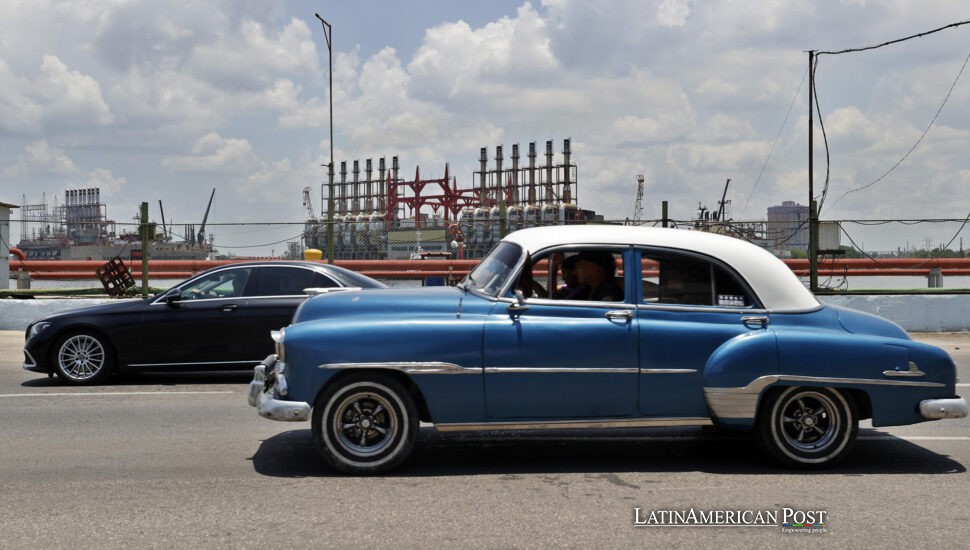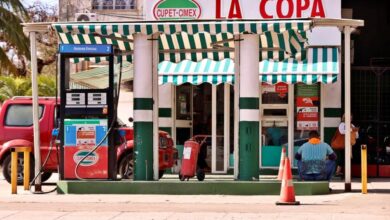Cuba’s Covert Deals Safeguard Fuel Supplies Bypassing US Restrictions

Amid grinding blackouts and shrinking fuel reserves, Cuba’s president has confessed to a clandestine oil pact with Venezuela. The covert “formula” dodges US sanctions—proof of how far Havana will reach into the shadows to keep a single bulb burning.
Shadows Behind the Oil Flow
The admission slipped out like a half-lit match. In his weekly podcast Desde la presidencia, President Miguel Díaz-Canel—voice low, almost conspiratorial—confirmed what Havana’s harbor cranes had hinted for months: Venezuelan tankers still glide in under cover of night. Beside him, Energy and Mines Minister Vicente de la O Levy nodded, explaining that Washington’s embargo squeezes every transfer, every payment, every unleaded dream, yet “a formula” keeps diesel pumping into Cuba’s thirsty generators. Neither man elaborated. They didn’t need to.
Old-timers at the docks recall the boom years when Hugo Chávez’s crude-powered streetlights from Pinar del Río to Baracoa. Now, with Caracas crippled by its own sanctions and production free-fall, Cuba moves petroleum like contraband jewelry—re-flagged ships, sudden radio silence mid-voyage, paperwork routed through shell companies in the Middle East. Maritime trackers show tankers vanishing from satellite view off Curaçao and reappearing twenty-four hours later, approaching Matanzas as if the Caribbean itself bent time to help them.
Academics call it “sanction evasion geometry”: zigzag routes, shadow registries, and payments funneled through banks so remote an atlas can’t find them on the first flip. The geometry is simpler for ordinary Cubans—no diesel, no light. As a state electrician in Camagüey jokes, “Our algebra is candles minus matches.” The clandestine lifeline staves off total darkness, but its secrecy underscores survival’s precariousness.
Blackouts, Blame, and the Politics of Survival
The president blames “la perversidad del bloqueo.” He reels off figures—millions lost for every bank that refuses Cuba’s wire transfer and hundreds of hours of generation capacity lost each week because spare parts can’t cross borders. The embargo is very real; even critics of the Cuban government reluctantly concede its bite. Yet on humid nights, when the grid collapses and refrigerators exhale their last cool breath, families curse not only Washington but also Havana’s aging smokestacks and leaking pipelines.
Cuba’s thermal plants date to the Soviet era, hulking relics that burn high-sulfur domestic crude and imported diesel in turbines scarred by decades without overhauls. Engineers cannibalize one unit to resurrect another, but each fix accelerates a new failure. Nationwide, outages now stretch twelve, sixteen, and even twenty hours. In Sancti Spíritus, residents set alarms to wake at 2 A.M.—the lone sliver of power when pumps push water to rooftop tanks. In Santiago, mothers cook three days’ rice at once, fearing tomorrow’s stove may stay cold.
Government loyalists frame the crisis as endurance: somos resistentes, somos luz. But the slogan dims against daily inconvenience. On social media—once dismissed as counter-revolutionary noise—hashtags like #PonLaCorriente gather thousands of posts: selfies lit by candle stubs, videos of children studying beneath cell phone flashlights, audio of makeshift generators sputtering outside small clinics. Even the state press slips more often acknowledge ” difficulties, ” pairing triumphal headlines with fine print about “programmed interruptions.”
Yet the embargo narrative remains indispensable. It rallies sympathy abroad, galvanizes the base at home, and cloaks missteps behind an external villain. When Díaz-Canel insists any detail about the oil formula would “hand the enemy our compass,” supporters applaud the secrecy as a patriotic duty. Detractors sigh; they’ve heard the refrain for sixty years.
A Fragile Lifeline and an Unlit Future
How long can the secret flotillas keep sailing? Venezuelan output hovers near historic lows, and each sanction-dodging maneuver risks seizure by foreign courts or interception by US patrols. Energy economists warn that one confiscated cargo could unravel the supply chain; insurers might bolt, crews refuse contracts, and intermediaries hike fees beyond Havana’s dwindling hard currency stash.
Even if the crude keeps landing, Cuba’s grid needs more than band-aid barrels. International consultants estimate $8–10 billion to refurbish plants, expand renewables, and modernize transmission lines—sums unimaginable while tourism struggles and sugar exports limp. Chinese credit once bankrolled glimmering hotel towers on the Malecón; today, Beijing eyes its property bubbles and offers only polite silence. Private investors crave transparency and profit guarantees, twin concepts still foreign to Cuba’s centrally planned DNA.
So, the island improvises. Solar farms sprout across Guantánamo; wind towers tick above Las Tunas; engineers test micro-grids in isolated villages. Yet these projects need time—and stable baseload power—to flourish. A cloudy week can black out an entire province without reliable diesel backups. That is why the whispered formula from Caracas matters: it buys time, one clandestine cargo at a time.
But time cuts two ways. Each blackout erodes patience; each workaround teaches ingenuity—and dependency. The revolution’s heirs swear they will never surrender, that hardship forges discipline, and that future generations will toast their grandparents’ resolve beneath LED bulbs powered by the sun. Maybe. For now, Havana nights glow in fits: a neon sign flickers over a tourist bar while the block behind sinks into the tar-colored dark. Old transistor radios crackle ballads about hope enduring. Street vendors sell melted ice cream as milkshakes before it spoils. In apartments, families gather around a single battery lamp, telling jokes to drown the silence of stalled fans.
Also Read: Mexico Fuel Theft Saga Costs Billions While Authorities Intensify Crackdown
Somewhere offshore, a tanker cuts its engine and drifts, waiting for another ship to sidle up, hoses snaking between hulls under moonlight—oil changing names, flags, and futures in the span of a secret midnight handshake. Onshore, Cubans strike matches, whisper prayers, and listen for the faint hum of turbines that might—or might not—return before dawn.




